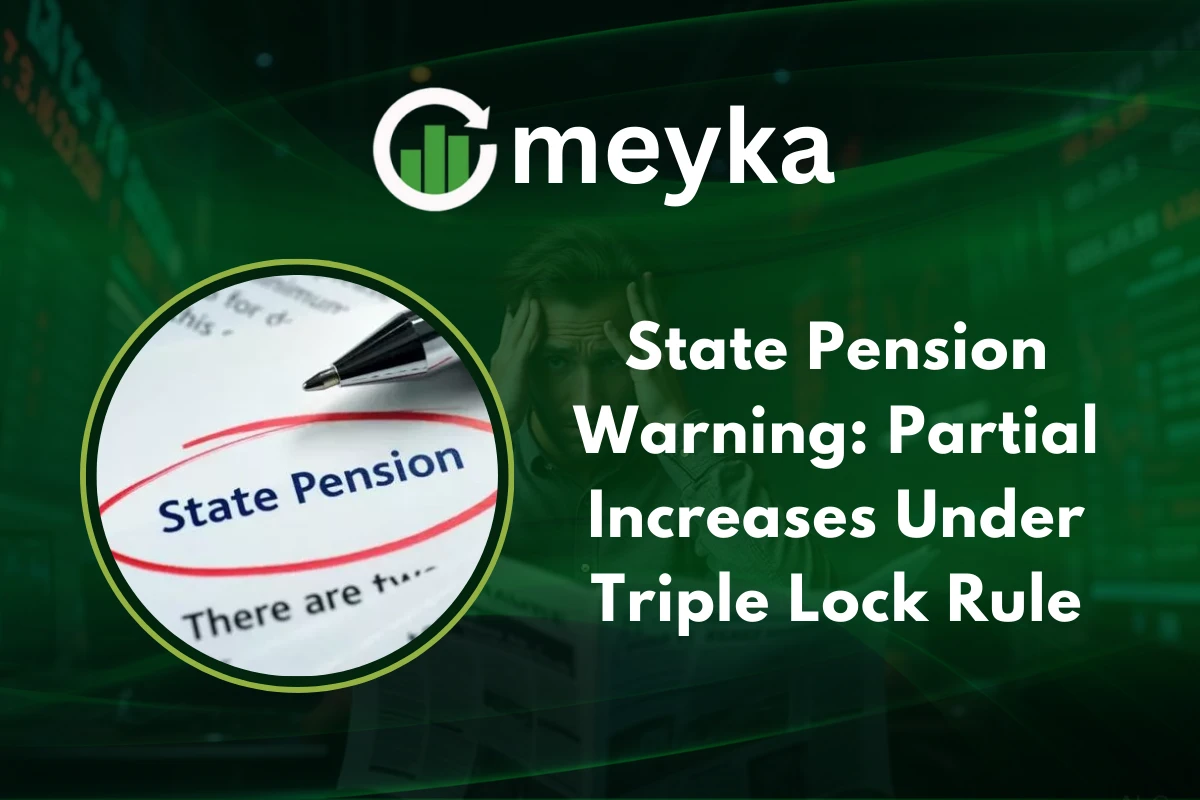State Pension Warning: Partial Increases Under Triple Lock Rule
The Triple Lock Rule has long promised to protect the incomes of UK pensioners. It guarantees the state pension will rise each year by the highest of inflation, average earnings growth, or 2.5%. The goal is to stop retirees losing buying power when prices or wages change and to protect retirement income against cost-of-living rises. However, recent reporting shows that not every pensioner will get the full rise next April.
New analysis suggests almost seven million older retirees could receive only a partial increase because their earnings-related top-ups are uprated by inflation alone. According to The Telegraph, that split could leave many pensioners hundreds of pounds worse off.
Why are some pensioners missing out?
What is the Triple Lock Rule?
The Triple Lock Rule compares three official measures each year. It uses September’s CPI inflation, the average earnings change for May–July, and a 2.5% floor. Whichever figure is highest becomes the pension uprating applied from April. The final number is confirmed when official data are published in the autumn.
How exactly is the rise decided?
Who Will Benefit and Who Will Miss Out under the Triple Lock Rule?
The difference comes from the old and new pension rules. People on the new state pension receive the full uprating if their earnings are the highest. But many older pensioners have a basic pension plus a SERPS or other earnings-related top-up. That additional payment is uprated by inflation only.
As a result, many people on the old system will get a smaller total rise. Both The Telegraph and Yahoo report that nearly seven million people are likely affected by this technical gap.
Can you see that in cash terms? Yes. If wages push the new state pension up by several hundred pounds a year, someone on the old system with an inflation-only top-up could gain much less. That difference matters for weekly budgets and essential bills.
Why Partial Increases Raise Concerns about the Triple Lock Rule
This feels unfair to many pensioners. Those on fixed incomes feel every small change to payments. The Telegraph also warns that higher state pensions could push some people above the personal allowance of £12,570, which would reduce net gains. Inews adds that many eligible pensioners do not claim Pension Credit and so miss out on extra support unless they apply.
Could partial rises create new tax or benefit traps?
Government Position and Possible Reforms to the Triple Lock Rule
The government has said the Triple Lock Rule will be protected for this parliament. Yet analysts and think tanks warn that the policy is costly and may not be sustainable in the long run. Options under discussion include a “double lock” or a smoother link to earnings to reduce volatility. The Telegraph reports ministers are watching pension spending closely as the population ages. Any change would be politically sensitive and likely phased in over time.
How are people reacting online?
Public Reaction on Social Media
Social media shows anger, frustration, and practical advice. Martin Lewis of MoneySavingExpert welcomed the uprating but warned that many pensioners will still face hardship and urged people to check their benefits.
Journalists such as Tamara Cohen and commentators like Adam Boulton have flagged the political fallout and called for clear guidance.
These posts have helped push the issue into local headlines and parliamentary questions.
What can pensioners do now?
Expert Opinions and Financial Advice on the Triple Lock Rule
Local advisers offer clear steps. Check whether you are on the new or old pension. See if you qualify for Pension Credit and apply if eligible. Search for lost private pensions and update any benefit claims. Review whether a higher state pension will affect your tax band. Free advice services can help with forms and checks. Experts stress early action, small entitlements often unlock larger support that helps before uprating is applied.
What does this mean for the future of retirement security?
The Bigger Picture: Retirement Security in the UK and the Triple Lock Rule
The Triple Lock Rule was introduced to protect pensioners living standards. It continues to help many retirees today. But higher pension costs, longer life expectanc,y and demographic change mean hard choices for future policy. Analysts call for reforms that protect the poorest while keeping the system affordable. For now, the Triple Lock Rule benefits many, but gaps remain and need public explanation and political attention.
What to watch next?
Watch the data that decides the uprating. September’s CPI and the May–July earnings figures matter most. The final uprating is confirmed in October and applied from April. If average earnings are highest, the new state pension will get the larger rise.
If inflation tops the three measures, more pensioners will receive that lower level. Trusted guides such as MoneySavingExpert will publish the confirmed figure in autumn.
Practical checklist for pensioners
- Check your state pension forecast and whether you get the new or old pension.
- Claim Pension Credit if you are eligible.
- Search for lost private pensions and get free help to find them.
- Review whether a higher state pension will change your tax position.
Conclusion
The Triple Lock Rule remains a key protection for many pensioners. But the technical split between the new pension and older earnings-related top-ups means millions may get only part of next year’s rise. That shortfall is a real financial risk for some households. Take action now: check entitlements, claim any benefits you can, search for lost pensions, and seek free advice from charities and local services.
The policy debate will continue, but the message is clear, the Triple Lock Rule helps many, yet gaps remain and need fixing by policymakers and by local support services.
FAQ’S
Savings don’t affect the State Pension, but they may impact benefits like Pension Credit under the Triple Lock Rule system.
Yes, under government plans the State Pension age will rise to 67 by 2026, linked with the Triple Lock Rule.
Pensions are frozen in many countries outside the UK, EEA, or treaty nations, meaning the Triple Lock Rule does not apply there.
If you’ve never paid National Insurance, you won’t qualify for a UK State Pension under the Triple Lock Rule.
You can live abroad and still receive your pension, but the Triple Lock Rule increases only apply in approved countries.
Yes, the DWP may review savings for means-tested benefits, though it doesn’t affect the Triple Lock Rule state pension.
Countries like the Netherlands and Denmark rank top, offering more generous pensions.
You still receive payments, but in some nations, the Triple Lock Rule increases will be frozen.
Yes, by retiring in a country with an agreement with the UK, where the Triple Lock Rule uprating applies.
Disclaimer
This content is made for learning only. It is not meant to give financial advice. Always check the facts yourself. Financial decisions need detailed research.






